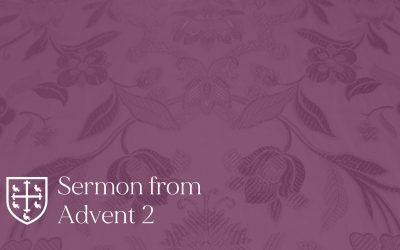3 Easter Year A 4/23/2023
Acts 2:14a, 36-41; Psalm 116:1-3, 10-17; 1 Peter 1:17-23; Luke 24:13-35
Rev. Mark A. Lafler
On Friday night this last week…
I had the privilege to attend a benefit banquet for the local
North Lake County Fellowship of Christian Athletes…
Usually referred to as FCA…
Our parish supports them monthly.
The speaker was one of the best wide receivers
in Florida State University history – Kez McCorvey.
Playing for Coach Bobby Bowden in the early 1990’s.
He was terrific as he shared his story of success and also failure…
And how he came to faith in Jesus as his Lord and Savior.
In his talk, he said:
“You always play to win. Nobody, plays to come in second place.”
And that’s true…
Any athlete… or any occupation really…
Hopes to lead their field…
You practice, study, read, and prepare so that you can be the best at whatever you do.
So, when it doesn’t happen.
When you don’t win…
It’s hard.
It’s frustrating.
Defeat is no fun.
We don’t hope for failure.
It stinks.
You can feel defeat (emotionally and physically).
It’s often hard to move on from defeat.
Just watch the players who lose a championship game…
An Olympic star who fails miserably on the final event…
A failed presidential run often ruins a political career.
Losing one’s job is devastating.
A midlife crisis can be a realization that you haven’t fulfilled your hopes and dreams.
When people face defeat and letdowns their faces tell it all.
Their gestures…
their mannerisms…
Everything about them spells DEFEAT.
Our Gospel reading today tells the story of two disciples…
Cleopas was the one…
The other is not named.
They were walking to this village called Emmaus…
It was about seven miles west of Jerusalem.
They were with the Apostles when the women reported to them that Jesus had risen…
Yet, they were downcast…
They declared: We had hoped that he was the one to redeem Israel.
They had hoped for a political revolt against Rome…
The occupiers of the land…
They were looking for a king…
One that would re-establish the glory days of King David…
So many centuries before.
So, they were sad… and defeated… and deflated.
Their walk of sadness was on Easter Sunday.
Luke says this is still the “same day” when the women went to the tomb and then told the others what they heard and saw:
not just the missing body but the angels saying that Jesus is alive.
Yet Cleopas and his companion can’t see past the empty tomb,
which is no sign of victory to them.
They felt the sorrows of defeat.
The information they had…
Suggested failure.
Then, the risen Lord – Jesus, himself began to walk with them…
though they did not recognize him.
He began to dissect the scriptures starting with Moses and all the prophets telling them the things about himself in all the scriptures.
Imagine this… the best Bible Study.
Ever.
After a while, it was getting late…
They begged him to stay with them.
He did.
He ate with them, and the scripture tells us this:
He took bread,
blessed and broke it,
and gave it to them.
Then their eyes were opened,
and they recognized him;
and he vanished from their sight.
Sometimes in life we just don’t understand the whole story…
We get pieces of it…
Understand things in certain ways…
Sometimes our assumptions lead us to create a false narrative.
And all of these uncertainties can mix up the truth of the whole story.
A great illustration of this is the news of the outcome of the Battle of Waterloo and how it was communicated to England way back in 1815.
The message was sent by rider, and then by ship across the English Channel, and then by semaphore (signals) from ship to shore.
The message had four words.
But only the first two were communicated because a heavy fog descended suddenly.
What got through was only…
spelled out by each letter as it was signaled…
“Wellington defeated.”
That’s all the relay on the tower of Winchester Cathedral saw,
and all he could do was pass on the sad news.
England lived in disappointment for 24 hours… Wellington defeated!
Then the fog lifted and the whole message could be completed.
The two missing words hidden by the fog were “the enemy.”
The whole truth was “Wellington defeated the enemy.”[1]
The whole message changed the entire attitude of England.
From defeat to within 24 hours the celebration of victory.
Life can be like that.
We can be walking our journey…
Our walk to Emmaus…
With only half the truth.
With assumptions that we start to believe as truth.
All the more in this age of information and technology.
Information is all around us…
At our fingertips…
In our pockets and purses…
Our phones are beckoning us to keep up with the information…
Not just of the day…
But of the hour…
Up to the minute.
We can have a dozen expert opinions on all the happenings in our world.
We don’t lack information.
We might lack wisdom, but we certainly don’t lack information.
And all of the challenges and uncertainties in life can confuse what we understand to be the things of God too.
We can question our theology and beliefs because of tragedy.
Our sickness can produce doubt.
The challenges of our family, our jobs, our finances, our circumstances can cause us to question the goodness of God.
And if we stay in these times of doubt and dryness…
If we give harbor to pain and loneliness…
Holding onto unforgiveness and misery…
We can become bitter…
And angry…
And mad at God.
We might even hold onto poor misunderstandings about God’s word…
How can the God of the Old Testament be the God of the New Testament?
And we move away from the ancient theology of the church.
How can a loving God allow this to happen?
Some of us have been there…
Maybe all of us have been there at one time or another.
Perhaps more than once.
The energy for the things of God have dissipated.
Going to church becomes a struggle.
We just want to be left alone.
We certainly don’t want to talk about the goodness of God.
To hear hymns and sermons about how God cares for our needs.
It’s tough.
That’s where the disciples were last week in our reading.
While we celebrate Easter with festivities…
The disciples celebrated the first Easter in fear behind locked doors.
Our reading today mentions the two disciples walking to Emmaus feeling defeated, frustrated, and sad.
But there is good news.
And it’s this:
Broken hearts can burn again.
In last weeks narrative, Christ met them where they were at and gave them peace.
In this week’s gospel, Christ meets up with them,
walks with them,
and when the time was right…
their eyes were opened…
when Jesus broke the bread and blessed it.
The good news of Jesus is that broken hearts can burn once again in love with Jesus.
As the Psalmist writes in Psalm 147.3:
He heals the brokenhearted
and binds up their wounds.
I don’t know what you carried in here today.
I don’t know what pain rests in your heart.
I don’t know what crisis you are dealing with.
But I do know that Jesus can walk with you on that road.
I do know that Jesus wants to reveal himself to you in the breaking of bread.
I do know that Jesus wants to heal you,
restore you,
strengthen you,
and give you hope and peace.
Today, just as our gospel reading said:
When he was at the table with them, he took bread,
blessed and broke it, and gave it to them.
Then their eyes were opened, and they recognized him…
Today, you are invited to the table of our Lord Jesus…
And when we come up to receive the bread and wine at the altar…
Bring your pain…
Bring you crisis…
And eat of the bread and wine…
That was crushed for you.
That was poured out for you.
Meet Jesus today at the table.
And may our eyes be opened all the more.
Recognizing him.
And may our hearts burn once more for Jesus.
Who is the risen Lord.
Amen.
[1] Illustration from Lloyd John Ogilvie, Silent Strength (Eugene: Harvest House, 1990), 102.




